7 Summer Nectar Flowers That Attract Butterflies
Updated: May 16, 2023
Looking for summer flowers that attract butterflies? Try these easy-to-grow choices that butterflies will love.
Working in a butterfly garden, I’m regularly asked for my favorite flowers that attract butterflies. Of course those choices will vary a bit depending on where you live, and when possible, I advise choosing native plants. But there are a few blooms that will work for almost any gardener, and these seven are among my favorites.
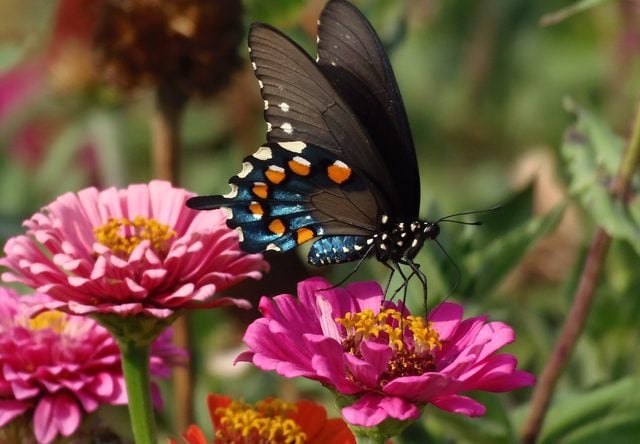
Zinnia
(Zinnia sp.) all zones, annual
One of the easiest flowers to grow from seeds, zinnias come in a wide array of colors, sizes, and bloom types. The Profusion series offers both single and double flowered versions that are a big hit with butterflies, while Zinnia ‘Envy’ is a lovely unusual pale green sure to draw compliments from everyone. Zinnias often re-seed for the following year, or you can snip the seed heads as they appear and save to sow in spring.
Will butterflies visit a sugar water feeder?
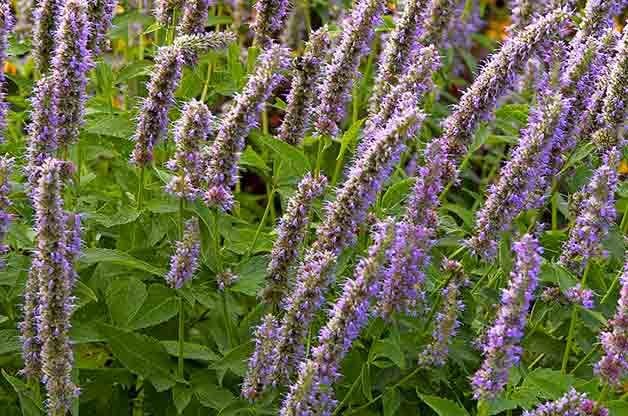
Anise Hyssop
(Agastache foeniculum), zones 3 – 9, perennial
If you like black licorice, you’ll love the smell of Anise Hyssop, sometimes called licorice mint. This plant is native to much of the northern U.S. and Canada, and produces lavender flower spikes that butterflies adore. It also has the great advantage of being deer-resistant and drought-tolerant. It’s easy to grow from seed, and the leaves can be crushed and added to teas or salads.
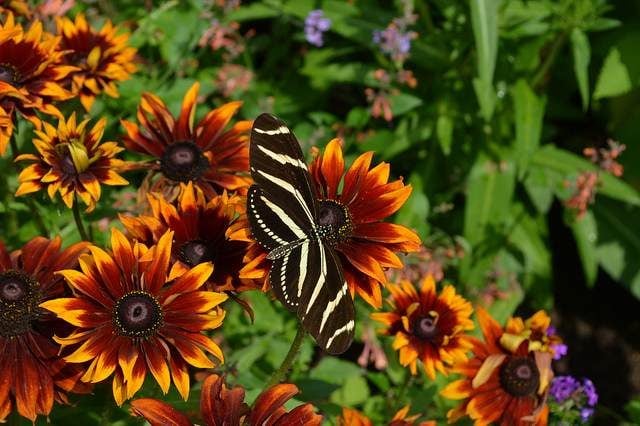
Black-Eyed Susan
(Rudbeckia fulgida, Rudbeckia hirta), zones 3 – 10, perennial
This beloved native wildflower is easy to grow in sunny spots, and will re-seed itself readily. The bright yellow blooms with dark-brown centers are instantly recognizable, although many varieties have been created and are available on today’s market, including those with orange petals and bi-color blooms. Provide regular water and room to spread.
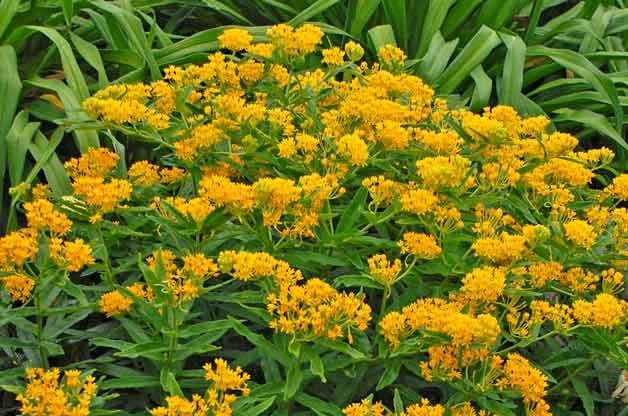
Butterflyweed
(Asclepias tuberosa), zones 4 – 10, perennial
Butterflyweed is in the milkweed family, which means it’s a host plant for monarchs and queens. But it also has clusters of bright orange flowers that attract butterflies of all kinds. In fact, most milkweed species have blooms that butterflies love. Try to find milkweeds native to your area, and trim the seed heads if you have trouble keeping it in check in your garden.
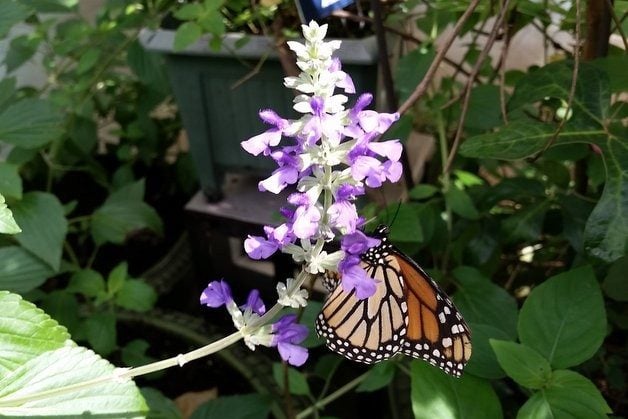
Salvia
(Salvia sp.), all zones, annual/perennial
The salvia family may offer more choices for flowers that attract butterflies than any other. Tropical Sage (Salvia coccinea) is a favorite in the southeast, while Mealy-Cup Sage (Salvia farinaceae) is beloved by butterfly gardeners everywhere. Try Salvia ‘Mystic Spires’ for tall bloom spikes that draw butterflies in large numbers.
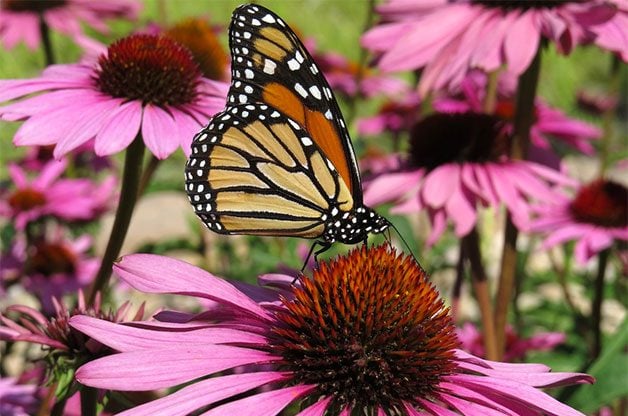
Coneflower
(Echinacea sp.), all zones, perennial
Coneflower species are also native to many parts of the country, and butterflies love these blooms. The cone-shaped heads allow you to easily see the butterflies that land on them for a meal. Purple coneflower (E. purpurea) is easy to grow from seed and thrives in most parts of the country (it may struggle in the humid heat of the deep south). Newer cultivars offer a wide variety of different colors and interesting head shapes, but stick with natives for the most nectar value.
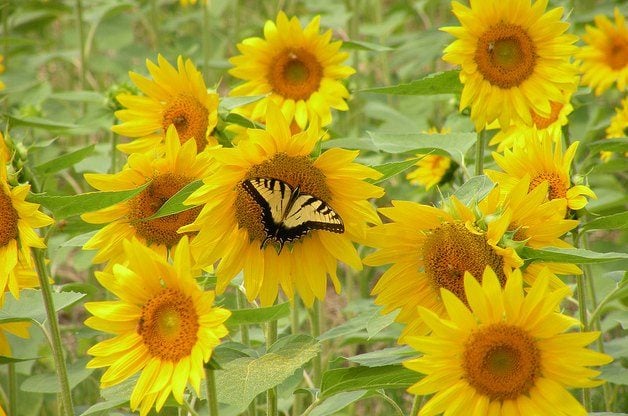
Sunflower
(Helianthus sp.), all zones, annual
Wildlife gardeners often grow sunflowers for birds, but these big blooms draw butterflies too. The tiny florets in the center of the heads attract them, and make a nice backdrop for photographs. If you don’t have room for tall sunflowers, seek out dwarf varieties like ‘Sunspot’ or ‘Elf’. Tip: Leave the seed heads in place to draw goldfinches and other birds in the fall.
What about Butterfly Bush?
Buddlleia davidii, commonly called Butterfly Bush, is a popular small shrub with flowers that attract butterflies. However, in some areas of the country, especially the Pacific Northwest, the shrub is very invasive. It spreads freely, choking out native plants. If you’d like to add buddleia to your garden, consult with your local extension office first to be sure it’s a responsible decision, and look for sterile varieties to cut down on the chance of it spreading.




















